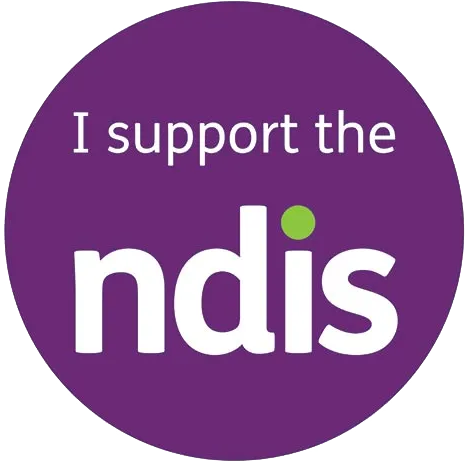In order to provide people with disabilities the resources they need to enjoy life to its fullest, Australia’s National Disability Insurance Scheme (NDIS) provides a wide range of programs. NDIS therapeutic supports stand out among these services since they are important in fulfilling a number of psychological and mental health needs. This write-up highlights the complicated details of NDIS therapeutic supports, including the kinds of therapies that are available, the importance of therapy assistance, and the roles that therapy assistants of NDIS play in the whole treatment plan.
Understanding NDIS Therapeutic Supports
The intended purpose of NDIS therapeutic support is to help individuals become more independent and successful. These services cover several different types of therapy, each specially designed to meet a participant’s unique needs related to their disability. Helping people in improving their skills, reducing the effects of their disability, and improving their quality of life are the objectives.
Types of Therapeutic Supports in the NDIS
A variety of therapies, each with an individual purpose, are included in the NDIS therapeutic support list. These treatments are divided into groups according to the variety of support they offer:
Occupational Therapy
Promoting, recovering, or strengthening everyday living and employment skills is the major goal of occupational therapy under the NDIS. To help participants become better at carrying out tasks at home, at work, or in the community, occupational therapists review their needs and develop solutions.
Physiotherapy
Improved flexibility, physical functioning, and general well-being are the goals of physiotherapy under the NDIS. Those who are recovering from illnesses or those with physical limitations will especially benefit from it. In order to enhance flexibility, lessen pain, and prevent more medical issues, physiotherapists work alongside participants.
Speech Therapy
Troubles with communication are dealt with by speech pathology, sometimes known as speech therapy. For individuals who face issues with speech, language, or swallowing, this kind of therapy is important. Speech therapists aim to improve their patient’s speech skills so they can express themselves clearly.
Psychological Service
Psychological services under the NDIS therapeutic assistance are important for improving mental health, which is a key part of overall well-being. In order to treat anxiety, depression, and other mental health concerns, participants might get counseling and therapy. These programs aim to improve mental health management and emotional resilience.
Exercise Physiology
Through customized exercise programs, exercise physiologists trained by the NDIS participants to improve their physical well-being. With a focus on those with long-term illnesses or disabilities in particular, these programs seek to enhance overall health, manage weight, and increase fitness.
Depending on the individual’s particular needs, these treatments can be used alone or in combination. Because of the NDIS therapeutic support list’s flexibility, each participant can receive the care that best suits their needs.
The Role of Therapy Assistants in NDIS Therapeutic Supports
Therapy assistance is essential in helping to support the use of various therapies, even though licensed therapists are often the ones leading the course of treatment. Therapy assistants in NDIS assist clients with exercises, activities, and other therapy duties while working under the guidance of licensed therapists.
Therapy assistants in NDIS is a qualified individual who assists therapists by performing duties related to therapy. They might work with people at community centers, residences, or educational institutions, among other places. A therapy assistant’s responsibilities can change based on the kind of therapy being provided, but they usually involve helping with –
Daily living tasks – Supporting with activities meant to increase the individual’s ability to fulfill everyday duties on their own.
Communication activities – Supporting speech therapists by practicing communication exercises with participants.
Creative therapies – Assisting with activities in art or music therapy sessions.
Exercise programs – Helping participants perform exercises as told or prescribed by physiotherapists or exercise physiologists.
Participants who need more regular support than what a therapist alone can offer will find the therapy assistant NDIS model very helpful. Better results can be achieved by individuals who receive more hands-on, regular help from therapy assistance.
The Impact of NDIS Therapeutic Supports on Participants’ Lives
NDIS therapeutic supports have helped to improve the lives of participants, allowing them to live according to their will along with a higher quality of life. These therapies help patients live happier lives by taking care of their emotional, mental, and physical health problems with specific actions.
Inside a huge structure that was specifically created to support people with disabilities in Australia, NDIS therapeutic supports play a very important role. The NDIS helps people to make better of their skills, achieve independence, and improve their quality of life by giving them an opportunity to access a wide range of services. Therapy assistants play an important part in strengthening this support system by ensuring that participants receive the required care regularly and efficiently.
Under the larger framework created to support people with disabilities in Australia, NDIS therapeutic supports play an important part. The NDIS helps individuals improve their ability to function, achieve independence, and improve their quality of life by giving them access to a wide range of services. Making sure that participants receive the required care continuously and successfully, the job of therapy assistants in NDIS increases this support even further.
For people with disabilities, NDIS therapeutic supports are more than simply a service; they are a lifesaver that helps them get over difficulties that could otherwise make their daily lives tough. These supports are meant to be highly customized, realizing that every NDIS participant has different needs, plans, and desires.
For many people, NDIS therapeutic supports—whether in the form of occupational therapy, speech therapy, or psychological services—provide a lifeline as they allow them to get past the challenges caused by their disability and fully live their lives. The NDIS is an essential tool in the process of creating a more inclusive society because of the joint efforts and approaches between therapists and therapy assistants in NDIS, which guarantees that every member gets the support and care they require.
The NDIS support categories, namely the therapeutic supports category, offer participants an endless number of services that are personalized to meet their individual needs. Through working with licensed NDIS providers and using therapy funding NDIS, participants may make sure they are going in the correct direction while improving their general state of health.










